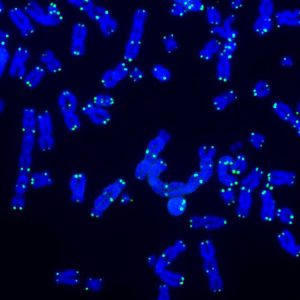
As we age, the end caps of our chromosomes, called telomeres, gradually shorten. Now, Salk scientists have discovered that when telomeres become very short, they communicate with mitochondria, the cell’s powerhouses. This communication triggers a complex set of signaling pathways and initiates an inflammatory response that destroys cells that could otherwise become cancerous.
The findings, published in Nature on February 8, 2023, could lead to new ways of preventing and treating cancer as well as designing better interventions to offset the harmful consequences of aging.
The discovery is the result of a collaboration between co-senior authors ...
Read More








Recent Comments